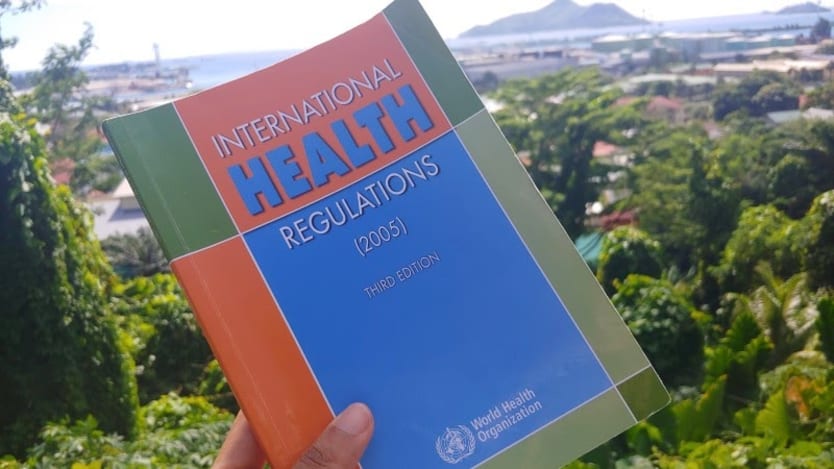
MANILA — There is high interest among a number of World Health Organization member states to introduce a differentiated alert level system for health emergencies, after many governments were accused of being slow in responding to the novel coronavirus outbreak. But the review committee tasked with looking into the regulations governing how WHO and countries respond to global health emergencies says the relevance of changing the alert system needs to be examined.
“The meaning and consequences of public health emergencies of international concern have to be fully understood by member states and inter- as well as supra-national institutions,” Lothar Wieler, president of the Robert Koch Institute in Germany and chair of the review committee on the International Health Regulations, told member states at this week’s 73rd World Health Assembly, based on the committee’s preliminary findings.
“The relevance of an intermediate level of alert to prevent a PHEIC from occurring and options for its implementation need to be also clearly examined,” Wieler continued.
Enough for Ebola, but not for pandemics? Why WHO emergencies work needs reform
The independent oversight committee says the WHO Health Emergencies Programme, which was shaped by the West Africa Ebola outbreak, does not have the ability to respond to a pandemic.
The International Health Regulations are an internationally binding treaty outlining the obligations of WHO and member states in a public health emergency, and they are seen as a critical global governance structure for infectious disease outbreaks. Revisions have been made to the regulations in IHR’s history, with the present version covering existing, new and reemerging disease pathogens, as opposed to the 1969 version that focused on cholera, plague, and yellow fever.
But public health experts think it is time to have a broader conversation on IHR, after recent outbreaks of Ebola — and predictions of more disease outbreaks occurring — as well as debates over when a public health emergency of international concern should be declared. They said questions around WHO’s response to the pandemic are also closely linked to the authority it is given under IHR.
Apart from the alert system for health emergencies, however, member states have also expressed interest in giving WHO authority to independently assess outbreaks in countries. Under IHR, countries should immediately report to WHO any unusual or unexplained health events. However, some countries do not, and WHO cannot force them to do so. There is no penalty for countries that fail to report under IHR.
But based on the committee's preliminary findings, Wieler said there is a need to further examine notification and event verification provisions in IHR “to understand the reluctance of some countries for early reporting and the need for incentives or other approaches to ensure better compliance.”
The role of WHO in making travel-related recommendations during a health emergency, and what incentives there are to increase country compliance with travel-related measures, also needs to be further examined, he said.
Battered with criticism, what's next for WHO?
COVID-19 is WHO's biggest emergency, but politics is its biggest headache. We ask experts what the world really wants from WHO.
But WHO’s rapid risk assessments for health events that run the risk of spreading internationally “are of utmost importance.” Strong public health and health care systems, as well as “adequate national legislation,” can help countries effectively respond to crises. And a universal peer review mechanism “may be useful” in assessing and monitoring countries’ preparedness and capacity to respond to global public health risks, Wieler said.
The present IHR review committee was convened by WHO Director-General Tedros Adhanom Ghebreyesus in September. It follows the establishment in July of the Independent Panel for Pandemic Preparedness and Response, co-chaired by former Prime Minister of New Zealand Helen Clark and former President of Liberia Ellen Johnson Sirleaf.
The IHR review committee’s mandate is to review the implementation of recommendations made by previous review committees and provide the WHO chief with recommendations for amendments to the current regulations, if and where necessary. But it is the World Health Assembly that decides whether to implement any of these recommendations.
The committee is expected to present an interim report to the WHO executive board in January.








